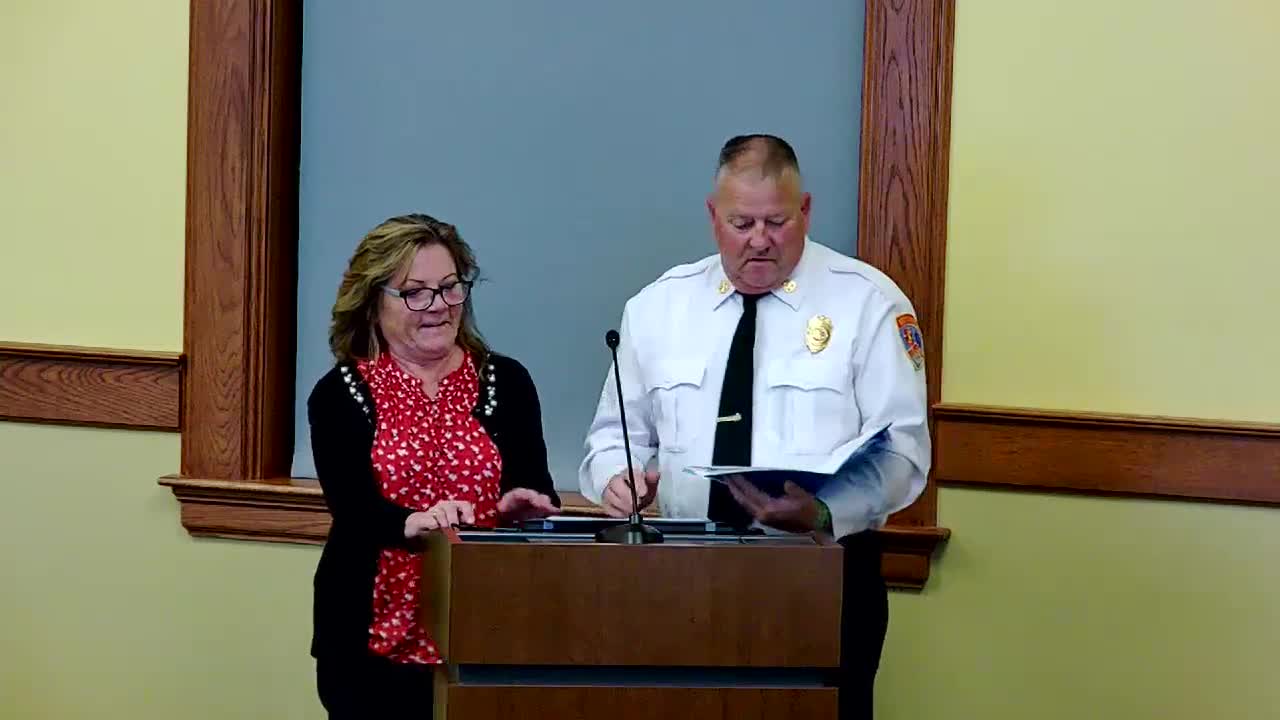Fire chief outlines rescue-billing fund, 5-year capital plan and purchase projections
Get AI-powered insights, summaries, and transcripts
Subscribe
Summary
Fire Chief John Leonard and town finance staff presented the Rescue Billing Fund, a rolling five-year capital plan funded by EMS billing that has supported millions in apparatus purchases and a $600,000 annual transfer to the general fund.
Fire Chief John Leonard and the town finance staff presented an overview of North Kingstown’s Rescue Billing Fund and a rolling five-year capital plan, describing how EMS billing revenue has financed apparatus purchases and reduced pressure on taxpayers.
The town’s rescue-billing account was described as the primary capital-revenue source for the fire department; historically the fund has brought in about $1 million to $1.2 million annually, with the town budgeting $600,000 of that each year as revenue to the general fund to reduce the municipal tax rate.
Chief John Leonard said the account supported a 2019 ladder-truck purchase paid in cash (about $1.2 million), the most recent rescue purchase, and last year’s radio replacement program that approached $1 million. The chief said the fund is managed with a rolling five-year projection; the department’s planning goal has been to avoid letting the account fall below $500,000.
The five-year projection included near-term replacements and planned purchases: completing the lease payments for Engine 5 (received two years prior), paying for a recently acquired rescue apparatus from cash rather than financing (a near-term $400,000 payment noted), engine and rescue replacements on a multi-year schedule, and early planning for a specialized “special hazards” truck the chief estimated could cost in the roughly $2,000,000 range when ordered and received. Chief Leonard emphasized that manufacturing and materials costs have risen substantially and the plan accounts for that in estimates.
Town finance staff (Deb, Finance Director) said rescue-billing proceeds also cover smaller recurring needs (SCBA cylinders, hose replacement, AED maintenance) and grant-match requirements when the department secures federal grants for equipment such as gear extractors. The fund has supported approximately $7.7 million in vehicles/apparatus/equipment purchases over the past decade, the presenters said, and the chief and manager meet multiple times a year to update priorities and adjust the five-year forecast.
Council discussion and concerns Council members asked how reimbursement rates are set and whether municipalities can expect stability. Chief Leonard and finance staff explained reimbursements depend on insurers; Medicaid (federal/state) rates are set at state/federal levels. The presentation noted a recent state-level increase in Medicare reimbursement rates enacted to incrementally raise Medicare payments over a multi-year period; however, the chief said payments from private insurers and Medicare historically have not fully covered the cost of providing EMS services.
Some council members voiced concern that having a sizable, dedicated reserve could attract legislative or insurer scrutiny or changes to reimbursement policy. The town manager and chief defended the fund as a prudent capital-reserve practice that funds planned purchases and keeps taxpayer impacts lower by smoothing capital spending.
No formal action was taken; the presentation served as an informational update and as the basis for continued budgeting decisions.
